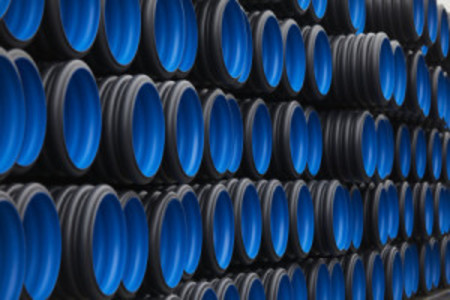Guest Blog: Championing transparency on environmental impact
As efforts to reduce carbon footprint and reach net zero continue to ramp up around the world, Environmental Product Declarations (EPDs) are becoming more common in demonstrating products’ environmental impact. While they are not currently a requirement in the UK, EPDs have become a requirement for infrastructure projects in some European countries and it’s possible that the UK could follow suit.
What are EPDs?
An EPD is a comprehensive assessment of a product’s environmental impact throughout its life cycle – almost like a nutrition label on food, providing key information on the environmental effects.
They offer credibility and transparency and, for future projects, EPDs make it easier to calculate and consider a product’s embedded carbon, simplifying the tender process and long-term offsetting costs.

How do EPDs work?
EPDs are third-party verified documents that show the environmental effects of a product. In doing this, it breaks down the impacts into the different phases in the product lifecycle. These phases are:
A1 – A3 – the product phase: this covers the raw material extraction, transportation to the manufacturing site and the manufacturing of the product.
A4 – A5 – the construction phase: this covers the finished product’s transportation to the installation site, plus the installation itself.
B1 – B7 – the use phase: this is everything that the product consumes within its lifespan – including energy, repairs, maintenance and replacement parts.
C1 – C4 – the end of life phase: this covers the removal of the product from situ, transportation to the reprocessing facility and the final destination for the material (for example, landfill or recycling).
D – additional benefits: this can include benefits that aren’t captured elsewhere, and contributes to the whole-life carbon.
What is Polypipe Civils & Green Urbanisation doing in terms of EPDs?
Sustainability and the environment are at the core of the Polypipe CGU business, as they manufacture a wide range of products and systems for civils and infrastructure projects using plastic instead of traditional materials.
Plastic has a number of benefits – from having a lighter weight and being easier to handle, benefiting health and safety, and allowing more product on a load for transportation to offering plenty of flexibility for design and specification. Plastic also has a variety of carbon benefits, which is illustrated within EPDs.
Polypipe CGU recognises the importance of offering transparency with regards to the environmental impact of customers using their products, so the business is currently in the process of creating EPDs for their product ranges – including Ridgidrain, Ridgiduct, Permavoid and Polystorm.
Now, Polypipe CGU is pleased to confirm that they have been successful in achieving over 60% EPD product coverage, with further developments also in the pipeline.
For more information on Polypipe CGU’s range of EPDs ask in your local Keyline branch or go to epdhub.com and search for Polypipe Civils & Green Urbanisation.
